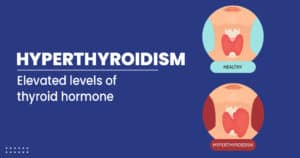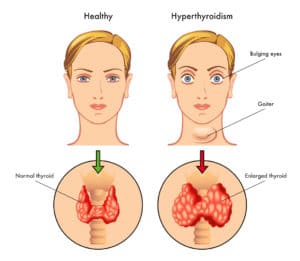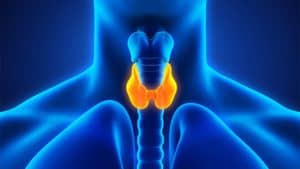There are risk factors for people who have been diagnosed with thyroid. Few people are more likely than others to develop thyroid problems, and although one can’t prevent thyroid disease, it’s important to detect it early. First, we need to understand what is the thyroid.
Thyroid disease is a common cause of hormonal imbalance in the body. The thyroid can make either too much thyroid hormone (hyperthyroidism) or too little thyroid hormone (hypothyroidism).
Thyroid disease mostly isn’t preventable, but awareness of risk factors and symptoms, and regular screening by your doctor, can help you to prevent serious complications if you do have a thyroid disorder.
Why it is important to know about your potential risks?
Understanding risk factors is important because it will help your doctor determine your need be screened for hypothyroidism. Regular screenings are your best ally in diagnosing hypothyroidism early on. But even if you have multiple risk factors, it does not guarantee that you will develop hypothyroidism. Conversely, not having any risk factors won’t protect you from the disorder.
If left untreated, hypothyroidism can progress and cause a multitude of complications. Understanding the symptoms of hypothyroidism and getting regular screenings to ensure an early diagnosis will help prevent the onset of the complications!
Risk Factors For People With Thyroid:
If you’re worried about your risk of developing hypothyroidism, there are two main factors to consider—age and sex. Your chances of being hypothyroid increase with age, and they are greater if you’re a woman.
Hypothyroidism occurs primarily in women older than 50.
Besides age and sex, your risk for hypothyroidism is increased if:
- You have a family history of thyroid disease or any autoimmune disease.
- You have type 1 diabetes or rheumatoid arthritis, or other autoimmune disorders.
- If you have taken anti-thyroid medications (a treatment for hyperthyroidism) or have been treated with radioactive iodine (a treatment for thyroid cancer).
- You have had thyroid surgery (you had your thyroid removed to treat thyroid cancer or to treat asymptomatic goiter).
- If you have been exposed to radiation to your neck or upper chest area.
What common symptoms can happen with thyroid disease?
There are a variety of symptoms that one could experience if that person has thyroid disease. Unfortunately, symptoms of a thyroid condition are often very similar to the signs of other medical conditions and stages of life. This can make it difficult to know if your symptoms are related to a thyroid issue or something else entirely.
For the most part, the symptoms of thyroid disease can be divided into two groups — those related to having too much thyroid hormone (hyperthyroidism) and those related to having too little thyroid hormone (hypothyroidism).
Symptoms of an overactive thyroid (hyperthyroidism) can include:
- Experiencing anxiety, irritability, and nervousness.
- Having trouble sleeping.
- Losing weight.
- Having an enlarged thyroid gland or a goiter.
- Having muscle weakness and tremors.
- Experiencing irregular menstrual periods or having your menstrual cycle stop.
- Feeling sensitive to heat.
- Having vision problems or eye irritation.
Symptoms of an underactive thyroid (hypothyroidism) can include:
- Feeling tired (fatigue).
- Gaining weight.
- Experiencing forgetfulness.
- Having frequent and heavy menstrual periods.
- If you are having dry and coarse hair.
- Having a hoarse voice.
- Experiencing an intolerance to cold temperatures.
Conclusion
Thyroid disease is often a life-long medical condition that you will need to manage constantly. This often involves daily medication. Your healthcare provider will monitor your treatments and make adjustments over time. However, you can usually live a normal life with thyroid disease. It may take some time to find the right treatment option for you and control your hormone levels, but then people with these types of conditions can usually live life without any restrictions, though we discussed some risk factors for people with Thyroid!
Get started with your Weight Loss Journey today and take a step towards a healthy lifestyle! Stay tuned for inspiring Weight Loss Journeys, and Delicious Recipes! Also, don’t forget to follow us on Instagram for the daily dose of Health, and Wellness content!









